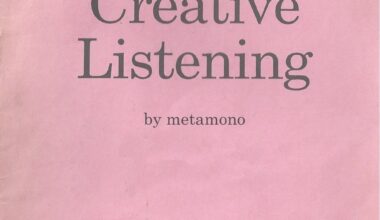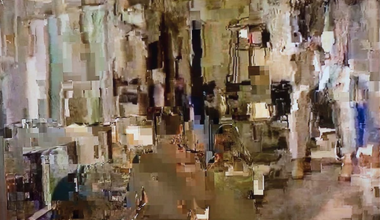It’s billed as a “hallucinogenic Ballardian journey”, but it isn’t quite as hallucinogenic or Ballardian as it might have been

Ryan Teague’s ‘Block Boundaries’ is inspired by psychogeography, which is apposite because Teague’s location in the pantheon of modern music is important. Positioned on the increasingly populous intersection between modern classical (minimalist) composers – Phillip Glass, Steve Reich, Terry Riley – and electronica, he can be likened to fellow contemporary producers such as Hauschka and Nils Frahm.
This is post-dancefloor music with a cerebral bent, evoking places, buildings, atmospheres, cloud formations even. It’s filmic and morphic, a soundtrack to a modern existence that is philosophical rather than physical. The press release promises the album will take you on a “hallucinogenic Ballardian journey through from the thrumming urban activity of New York, Amsterdam and London”. Unfortunately, and perhaps I am being a little mean here, it has to be said that this description is rather more stimulating than the record itself.
‘Block Boundaries’ is a proficient album. It’s a respectable addition to any collection. It’s a pleasant enough listen and there are lots of things that I like about it. But you can sense there’s a “but” coming, can’t you? The trouble is, it’s not particularly groundbreaking stuff and, if you are not already a fan of this kind of repetitive electronic ebbing and flowing, it’s not going to do much to convert you. It feels, well, a bit generic and a bit bland.
Teague is not strong on melodies. Right from the opening track, ‘Site And Situation’, which has oscillating chimes and cellos aplenty, the mode here is all about abstractions and textures. Something like ‘Liminal Spaces’, with its soft patterns of piano, is warming and intelligent, but other pieces struggle under the weight of their influences. You can hear their antecedents arpeggiating insistently throughout. To be fair to Teague, though, this is a charge you could level at a lot of contemporary music. The first time I listened to the universally acclaimed FKA Twigs album, I felt it was absolutely sodden with the ghosts of Kate Bush and Björk.
Ultimately, I don’t think there’s enough emotional heft to the music on ‘Block Boundaries’. The main exception is the last track, ‘End Of The Line’, which has a beautifully melancholic cast to the tonal hue, but that’s about as dramatic as it gets. I guess I just like a bit more psycho in my psychogeography.





